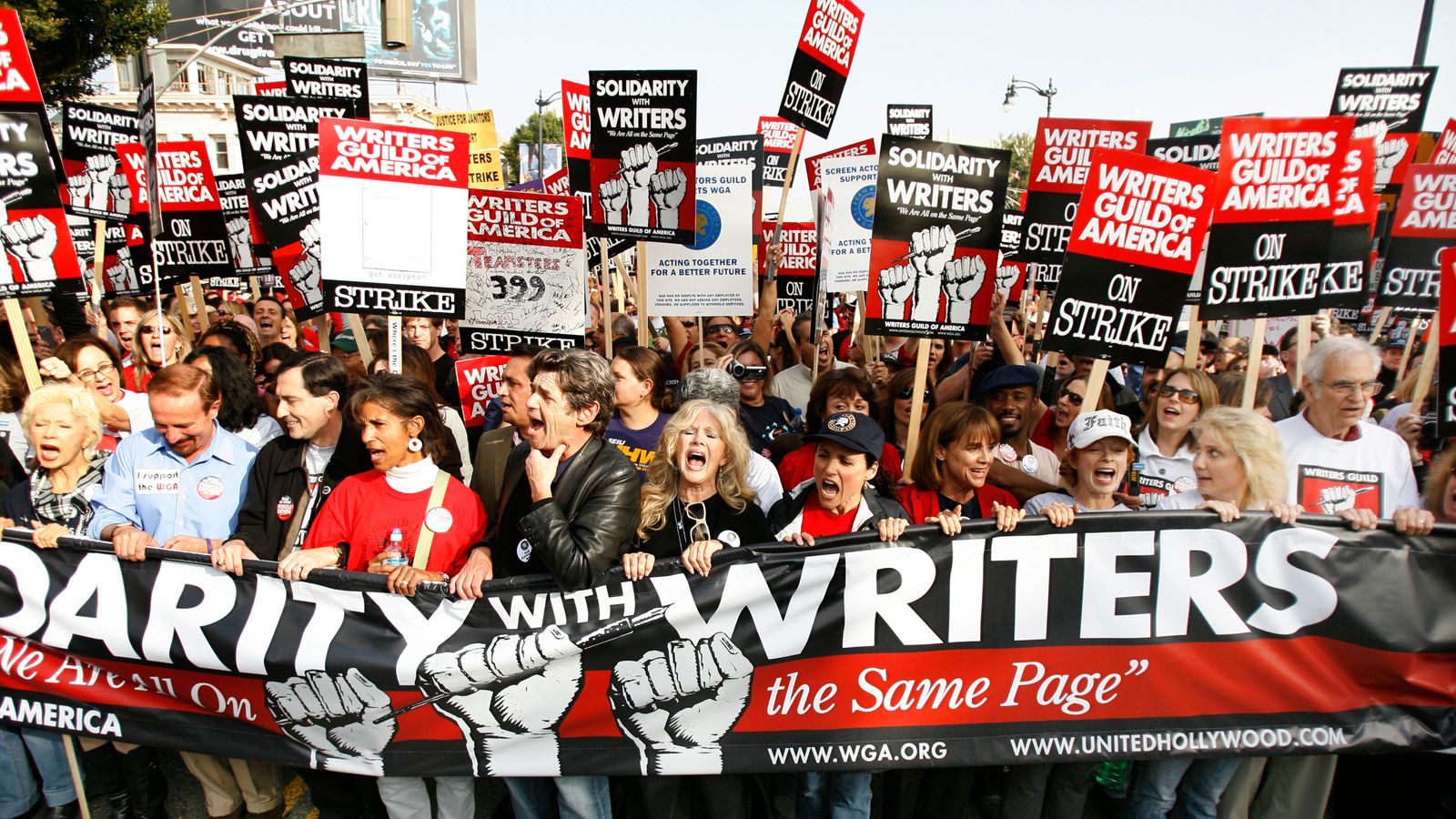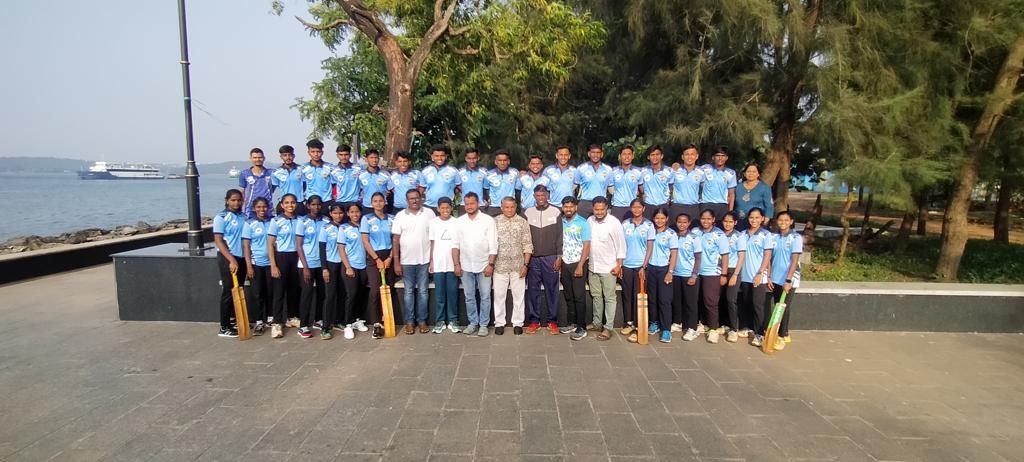Hollywood Shut Down: Actors And Writers On Strike — What It Means For Film And TV

Table of Contents
The Writers' Strike: Core Issues and Demands
The WGA strike, which began in May 2023, highlights the fundamental changes impacting writers' livelihoods in the streaming era.
Fair Compensation in the Streaming Era
The transition from traditional television to streaming has dramatically altered the compensation model for writers. While network television often provided lucrative residuals based on syndication and reruns, streaming platforms largely offer upfront fees with minimal or no residuals. This means writers are not compensated for the ongoing success and longevity of their work on platforms like Netflix, Hulu, and Amazon Prime.
- Reduced Residuals: Streaming services’ business models often prioritize subscriber numbers over traditional revenue streams, leaving writers significantly underpaid compared to the success their shows achieve.
- Impact on Long-Term Earnings: The lack of residuals severely impacts writers' long-term financial stability, especially for those working on successful, long-running series.
- Examples: Shows with enormous streaming viewership might not generate the same level of compensation for writers as a modestly successful network show did in the past. This inequality is a central point of contention in the writer's strike, making streaming residuals a key demand of the Hollywood writers guild.
Minimum Staffing Levels and Working Conditions
The pressure to produce content quickly and cost-effectively in the streaming era has led to reduced writing staffs on many shows. This has created an unsustainable workload for writers, impacting the quality of the final product and their overall well-being.
- Increased Workload: Fewer writers mean longer hours and increased pressure to meet deadlines.
- Impact on Creative Quality: The reduced staffing can lead to rushed scripts, underdeveloped storylines, and a decline in overall creative quality.
- Demands for Improvement: The WGA is demanding improved minimum staffing levels and better writers' working conditions to ensure fair workload distribution and better treatment of writers. The role of showrunner responsibilities has also become a point of negotiation, with writers demanding more support staff to handle their increased burdens.
The Rise of AI in Screenwriting
The increasing use of artificial intelligence in screenwriting is a major concern for writers. AI tools raise questions about job security, creative control, and the potential for AI-generated content to devalue human creativity.
- Job Displacement Concerns: Writers fear that AI could be used to replace human writers, leading to job losses and a reduction in opportunities.
- Creative Control Issues: Concerns exist regarding the use of AI to generate or significantly alter scripts without proper writer input or credit.
- Safeguards Needed: The WGA is advocating for strong safeguards to protect writers from AI-driven job displacement and ensure that human creativity remains central to the screenwriting process. The AI in screenwriting debate is a crucial element of the negotiations.
The Actors' Strike: Joining Forces and Key Demands
SAG-AFTRA joined the strike in July 2023, bringing the power of the acting community to the fight for fair treatment and working conditions. The actors' demands mirror many of the writers' concerns, particularly regarding compensation in the streaming era and the use of AI.
Fair Wages and Residuals for Actors
Actors face similar challenges as writers when it comes to compensation in the streaming era. Streaming services often offer lower pay and fewer residuals than traditional television, leaving many actors struggling to make ends meet.
- Reduced Residuals: Streaming deals often lack the residuals that traditional media provided, impacting actors’ long-term income potential.
- Fair Compensation: The actors' strike is a direct result of the need for SAG-AFTRA to negotiate fair compensation within streaming contracts.
- Impact on Actors' Livelihoods: The reduced compensation can significantly impact the financial well-being of many actors, especially those who rely on residuals from reruns and syndication.
Protecting Actors from AI and Self-Taping
The increasing use of AI in the film and television industry is also a significant concern for actors. There are worries about AI being used to replace actors or alter their performances without their consent, as well as the exploitation of self-taping processes.
- AI-Generated Performances: The potential for AI to replace actors raises serious concerns about job security and the devaluing of actors' skills and creativity.
- Self-Taping Exploitation: The prevalence of self-taping auditions places additional burdens on actors, requiring them to invest in equipment and incur costs without adequate compensation.
- Protecting Actor Rights: SAG-AFTRA is pushing for strong protections to ensure that actors' performances are not exploited by AI and that fair working conditions are maintained in the age of digital performance and technological advancements.
Standardization of Working Conditions
The actors' strike also seeks to address inconsistencies and unfair practices in working conditions across different productions.
- Long Working Hours: Many actors experience excessive working hours and inadequate rest periods.
- Inconsistent Safety Measures: There are inconsistencies in safety protocols and protections on various film and television sets.
- Fair Treatment: The goal is to standardize working conditions to ensure the actor safety and fair treatment of all actors, regardless of the production's size or budget. Working conditions on film sets and in television production are under intense scrutiny.
The Impact of the Hollywood Shut Down on the Industry
The Hollywood shutdown is having a profound and wide-ranging impact across the entertainment industry and beyond.
Delays in Film and Television Production
The strike has brought production on countless films and television shows to a complete standstill, leading to significant delays and potential financial losses.
- Upcoming Releases Postponed: Many highly anticipated movies and TV series are experiencing release date pushbacks.
- Financial Losses: Production delays result in significant financial losses for studios, networks, and other stakeholders.
- Domino Effect: Delays in one project can impact the scheduling of others, creating a cascade effect throughout the industry. Production delays caused by this Hollywood shutdown are already impacting film production and television production schedules globally.
Economic Consequences for Related Industries
The strike's ripple effect extends beyond the entertainment industry itself, impacting businesses that rely on film and television production.
- Support Services Affected: Catering companies, transportation services, and other support businesses are experiencing job losses and revenue shortfalls.
- Local Economies Impacted: Film and television production often provides significant economic stimulus to local communities. The shutdown impacts the Hollywood economy and film industry jobs across multiple sectors.
- Tourism and Hospitality: Even the tourism and hospitality industries are negatively impacted by reduced filming activity and fewer film-related events.
Impact on Viewers and Consumers
The strike is creating a shortage of new content, leaving viewers with fewer options and potentially delaying the release of anticipated movies and TV series.
- Reduced Content Availability: The lack of new programming impacts viewers and their viewing experiences.
- Delays in Releases: Fans are facing delays in the release of their favorite shows and movies. Movie delays and TV show delays are a growing concern for the viewer experience.
- Long-Term Implications: The long-term impact on the viewing experience, particularly the quality and consistency of content, remains to be seen.
Conclusion: Navigating the Hollywood Strike and Its Aftermath
The dual strike by writers and actors represents a significant turning point in the entertainment industry. Both the WGA and SAG-AFTRA are fighting for fair compensation, improved working conditions, and protections against the disruptive effects of AI. The Hollywood shutdown caused by this strike is having profound economic and creative consequences. The outcome of these negotiations will significantly shape the future of film and television. Stay informed about the ongoing Hollywood strike and its effects on your favorite shows and movies. Follow updates on the situation to understand the potential long-term impacts of this unprecedented Hollywood shutdown.

Featured Posts
-
 Gwen Stefanis Sheer Little Black Dress At The Opry 100 Celebration
May 27, 2025
Gwen Stefanis Sheer Little Black Dress At The Opry 100 Celebration
May 27, 2025 -
 Chitras Century Not Enough J And K Falls To Goa In Cricket Match
May 27, 2025
Chitras Century Not Enough J And K Falls To Goa In Cricket Match
May 27, 2025 -
 Chinas Impact On Bmw And Porsche Market Share And Future Prospects
May 27, 2025
Chinas Impact On Bmw And Porsche Market Share And Future Prospects
May 27, 2025 -
 Lagarde In Yeni Aciklamalari Fiyat Istikrari Icin Ecb Nin Planlari
May 27, 2025
Lagarde In Yeni Aciklamalari Fiyat Istikrari Icin Ecb Nin Planlari
May 27, 2025 -
 Laso Chlef Usma Victoire Chlefienne Au Stade Du 5 Juillet
May 27, 2025
Laso Chlef Usma Victoire Chlefienne Au Stade Du 5 Juillet
May 27, 2025
